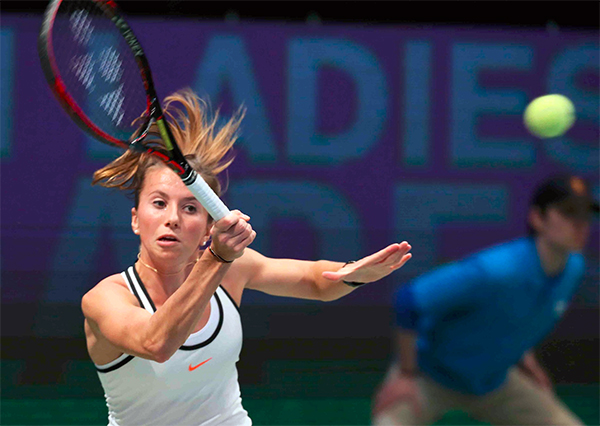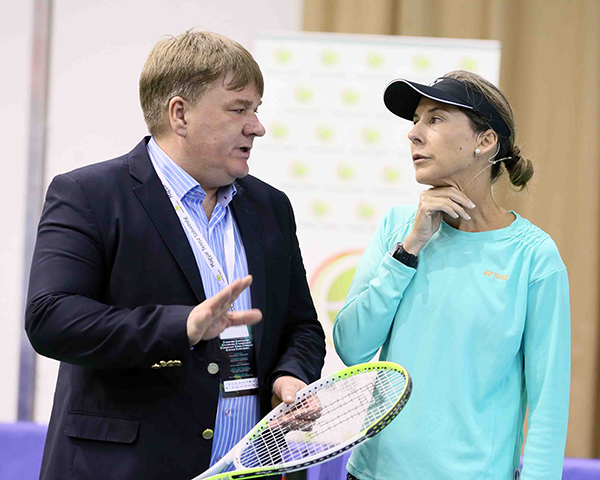News | WTA Tennis English
BUDAPEST, Hungary – Top seed Timea Babos kicks off her Hungarian Ladies Open campaign with a solid victory in front of her home crowd, knocking out Turkish wildcard Ipek Soylu in straight sets to move into the second round.
“I’m just happy to play here at home,” Babos enthused after the match. “It’s very special for me, it motivates me a lot – I’m very happy to have this first win.”
With the support of the vocal home fans, Babos powered her way to a 6-3, 6-2 victory over Soylu, breaking her serve five times and needing just an hour and twenty minutes to advance.
“Already for the first round to have such a great crowd and such a big number of fans, it’s an amazing feeling. Hopefully this week I can continue that, and playing singles and doubles will bring out plenty of people.”
Besides being Babos’ first victory in Budapest since 2013, it’s also the Hungarian’s first main draw win of the year after a disappointing string of first-round losses stretching back to October 2016.
“It was not an easy season so far for me,” Babos reflected. “I started to play better at the St. Petersburg Ladies Open, but I played a lot of Top 30 players. I lost some tough three-setters.
“But then I had Fed Cup, which helped a lot. I played very, very consistent and I beat some Top 30 players and started to feel better.”

Also in action, No.8 seed Annika Beck had to fight against the home crowd on her way to the quarterfinals against Hungarian wildcard Fanny Stollar.
Yesterday, Stollar thrilled the local fans by notching her first ever WTA main draw victory against Danka Kovinic, but the No.282 was unable to back it up and fell to Beck, 6-2, 6-0.
“It was a very good match and she started off pretty well,” Beck said afterwards. “I backed off a bit at the start and fought my way through the games. I got on top of her and was able to finish it off, even with the score it was still a close match since the games were close.”
“It’s my first quarterfinal of the year, I’m just happy I can keep up the good results and have more success on the court.”

Joining Beck in the quarterfinals is No.2 seed Lucie Safarova, who needed just 56 minutes to sweep past Hsieh Su-Wei, 6-2, 6-1. The 2015 French Open finalist took an early lead in both sets, opening with a break in each to control the match and battle past the No.102 Taiwanese.
“It’s always nice to play the tournaments which are close to home so more friends and family can come,” Safarova said. “This week my coach’s family and little kids are here. Those are my friends! It’s nice and I’m enjoying it.”
Rounding out the quarterfinals are No.3 seed Julia Goerges, who defeated Donna Vekic 6-2, 6-2 in less than an hour, and Belarusian qualifier Aliaksandra Sasnovich, who scored another upset to knock out No.6 seed Pauline Parmentier, 7-6(3), 6-4.














